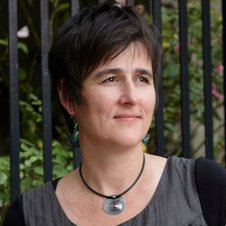Why We Need Open Source Pharma
BY ELS TORREELE

Despite a dominant narrative of relentless medical progress thanks to biomedical innovation, there is increasing recognition that the current proprietary and patent-driven model for pharmaceutical innovation is deficient. While critical medical needs remain unmet (e.g., tuberculosis and other drug-resistant bacterial infections), the large majority of new medicines developed have no added therapeutic value. The few new drugs that do represent breakthroughs are priced out of reach for most, except the wealthy and well-insured (e.g., new hepatitis C and cancer drugs). While previously mostly an issue for people in low- and middle-income countries, the economic crisis and austerity policies in Europe have exposed unaffordable medicines as a systemic failure of the current medical innovation model. In fact, there are growing concerns that the steady increase in medicines prices, which simply reflect monopoly power and profit maximization by pharmaceutical companies, are threatening access to health care even in the United States and Europe. The myth of ever increasing R&D costs (now into the $1-$2 billion range) to justify high medicine prices does not hold up to data scrutiny (real expenditures are more in the $100-$200 million range), and is toppled by much higher marketing expenditures. Instead, it points to massive inefficiencies in the R&D process that are being sanctioned in the current model in which a highly monopolized and subsidized market is being forced to pay any price for a new medicine. The unmasking of pharmaceutical companies’ practices of data manipulation and secrecy with clinical trials, as well as deceitful marketing leading to massive overconsumption of potentially harmful medicines, and underscores the inadequacy of the current model to respond to people’s health needs. But another way is possible, and it’s called open source pharma. Instead of viewing medicines as proprietary luxury goods that are owned by private companies, medicines could be public or social goods, developed through an approach based on knowledge sharing, transparency, and massively distributed, joint efforts for the public benefit—rather than the current exclusivity, secrecy, and competition that primarily further private interests. This was the theme of the recent Open Source Pharma Conference that brought together a group of researchers, public health advocates, open source experts, and out-of-the-box pharma thinkers at the Bellagio Center in Italy, to lay the foundation of a movement that aims to develop an alternative, comprehensive, open source pharmaceutical system driven by principles of openness, patient needs, and affordability. As a next step, we need to get the word out and mobilize the scientific, public policy, and business community to join us in building concrete R&D projects that apply these principles, and together learn how to utilize the creative capacities of many to develop much needed medicines for the people, including ensuring that they reach those in need. Thousands of researchers worldwide are keen to contribute to discovering new medicines that address critical medical needs. Let’s connect them and create platforms to share ideas and resources, and revolutionize the way we go about medicines, from the bottom up. Els Torreele is Director of the Access to Essential Medicines Initiative at the Open Society Foundations. She is @ElsTorreele on Twitter. |
Other essays in this series: James Kassaga Arinaitwe, Global Health Corps & Aspen Institute Fellow / Kampala Manica Balasegaram, Exec. Director, Access Campaign, Médecins Sans Frontières / Geneva Polly J. Price, Emory University law professor / Atlanta John Wilbanks, Chief Commons Officer, Sage Bionetworks / Washington, D.C. Dimitrios Tzalis, Founder & CEO, Taros Chemicals GmbH & Co. KG. / Dortmund T.V. Mohandas Pai, Chairman, Manipal Global Education Services / Bangalore Tomasz Sablinski, CEO of Transparency Life Sciences / NYC Zakir Thomas, Open innovation expert & former Project Director of OSDD / Delhi Matthew Todd, Founder of Open Source Malaria / Sydney & Cambridge |

